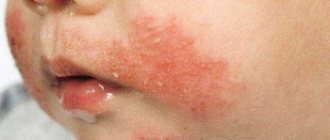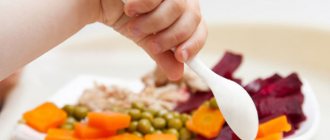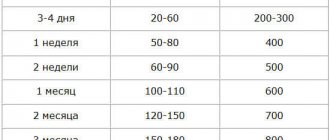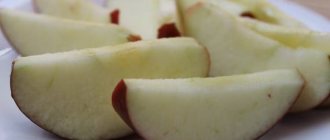Good afternoon, dear reader!
Every mother worries about the health of her child and tries to ensure that he gets sick as little as possible. But, for some reason, this is sometimes done in strange ways: they dress the child like Mimosa from the old children’s book, putting everything they can on him in inclement weather, and at home wrapping him in thirty blankets. This type of care often leads to the opposite result, and children raised in greenhouse conditions are more susceptible to infections and colds than others. How to boost a child’s immunity and make him immune to diseases?
Features of children's immunity at different ages
As soon as a child is born, he faces a lot of dangers. First of all, this applies to bacteria and viruses. While the baby was in the mother’s womb, he was under the care of her immune system, and with cutting the umbilical cord, this connection is practically lost. If a mother breastfeeds her baby, he still receives some of the antibodies that help fight viruses and bacteria. But every month the amount of such substances decreases, and in parallel with this, children develop and strengthen their own immunity.
The development of the baby’s immune system occurs only if he begins to interact with the outside world. Trying to completely protect the baby from dangers and overprotecting him from contact with bacteria, parents only make things worse. After all, the antibodies necessary for the formation of a specific immune response are not formed by themselves. They appear only as a result of a reaction to external stimuli.
At different periods of a child’s life, immunity has its own characteristics. Based on this, pediatricians identify several characteristic phases when it is necessary to pay special attention to the health and strengthening of the immune system in children.
First month of life
The baby has just been born, and the only protection he receives from his mother is breast milk with her antibodies. During this period, you need to be especially careful not to interfere with the formation and development of healthy intestinal microflora of the baby, which becomes the basis for strong immunity in the future. To ensure this, the mother needs to eat well, closely monitor personal hygiene, follow the rules of caring for the newborn, and clean the premises in a timely and thorough manner.
Age from six months to one and a half years
During this period, maternal antibodies practically no longer work. In parallel with this, the child is introduced to the first complementary foods, to which the immune defense does not always respond adequately. Because of this, the baby may develop allergies, malfunctions in the functioning of the gastrointestinal tract are observed, and he gets colds and illnesses more often. To strengthen the immunity of a child aged six months to one and a half years, parents need to monitor the daily routine and nutrition of the baby, if possible protect him from sources of viruses and infections, and instill the habit of following the rules of personal hygiene.
Ages two to four years
Pediatricians associate this age period with the active socialization of the baby. He becomes more independent, acquires communication skills with the outside world, and learns to interact with peers. It is at the age of two that children most often begin to attend preschool institutions, and accordingly, their circle of contacts expands. It is not surprising that children get sick more often during this period. To help them cope with colds, it is recommended not only to follow a daily regimen and routine, but also to include folk remedies and specialized pharmaceutical preparations in the program to strengthen children’s immunity. For example, Derinat drops. They have proven themselves well in the prevention and treatment of influenza and ARVI. Derinat drops help improve immunity, protect and strengthen the mucous membranes through which the virus enters the body. Derinat is used at any age, including infants from the first days of life. Consult your physician before use.
Ages six to seven years
This age period is characterized by increased stress on the baby’s body. This is due to the fact that he is preparing for school, going to first grade, and accordingly, his usual daily routine is completely changing. The entire body and immune defense are plunged into a state of stress, hence the baby’s fatigue, lack of strength, lack of appetite and general apathy. To strengthen a child’s immunity at this age and maintain his overall health, pediatricians advise planning the baby’s diet more carefully and enriching it with foods with high vitamin and mineral value. To develop the musculoskeletal system and maintain brain activity, it is recommended to include more seasonal vegetables and fruits, cereals, fish and seafood, and high-quality meat in your baby’s menu.
Ages 11 to 13 years
This is a period of active hormonal changes in the body. At this stage, children often experience mood swings, blues or, conversely, irritability, high fatigue, and decreased attention. As a rule, this period is dangerous due to the formation of various autoimmune diseases and diseases of internal organs. To support health, adolescents are recommended to eat a nutritious and varied diet, take additional vitamin complexes, and adjust their daily routine, allocating more time for rest and sleep.
Use probiotics.
Probiotics are strains of “good” bacteria that suppress “bad” bacteria in the gastrointestinal tract. They have a positive effect on the immune system and can even modulate immune responses in the intestinal mucosa. It is well known that gut bacteria interact with components of the immune system.
Therefore, regularly provide foods rich in probiotics that strengthen the immunity of frequently ill children, such as fermented milk products (yogurt, kefir) and sauerkraut, to your table.
General recommendations for strengthening a child’s immunity
Strengthening the immune system in children should begin from the first days of their life. Under no circumstances should you be overprotective and hide your child from the outside world, thereby trying to protect him from bacteria and viruses. As practice shows, children who grew up in “greenhouse conditions”, when they start going to kindergarten or school, get sick much more often, while influenza and acute respiratory viral infections take longer and are more difficult for them. In this regard, you can remember the general rules on how to increase a child’s immunity using folk remedies.
Carrot
Boiled carrots will help with diarrhea.
Carrots have quite a strong medicinal effect. Increases the level of resistance of the child’s body to viruses, helps with anemia or general weakness. In addition, it has a high content of beta-carotene, which is necessary for good vision.
Carrots are grated or juice is squeezed out of them. When boiled, it will help with diarrhea. To preserve the beneficial properties of carrots, it is better to steam them.
Healthy lifestyle
Kids at any age are extremely active, and this should be used for the benefit of their health. Therefore, teach your children to lead a healthy lifestyle from an early age, play more outdoor games with them, enroll them in a sports section, take them hiking and fishing with you, and travel together. It would also be a good idea to accustom your baby to hardening and massage.
Simple hardening.
I want to talk about a basic increase in resistance to environmental factors. Walking barefoot, swimming in cool water, not being afraid of drafts, drinking cold water, eating ice cream - this is called hardening.
To avoid problems with the throat, contrasting temperatures are needed. One of the most powerful stimuli for the local immunity of the oral cavity is cold: ice cream, iced drinks. When cold comes into contact with the mucous membrane of the tonsils, blood circulation is activated in it. If you constantly maintain a high level of blood circulation, this helps eliminate chronic inflammatory processes. In addition, mucus is produced in the throat, which contains protective substances. If the mucus is dry, these substances do not work. Therefore, the way to a healthy throat is to avoid drying out your mouth and use contrasting temperatures.
Accommodations
To strengthen a child’s immunity, you need to create comfortable living conditions for him. Basic rules in this case:
- daily cleaning and ventilation of rooms;
- allocation of individual products for personal hygiene;
- maintaining comfortable humidity and temperature in the room.
To reduce the likelihood of allergies, it is recommended to wash your baby’s soft toys more often, and perhaps remove carpets and fabric curtains from his room that can accumulate dust.
How to increase a child’s immunity using folk remedies?
Only a doctor should prescribe medications to boost a child’s immunity. However, in addition to the prescribed therapy, you can turn to traditional medicine. If your child does not have allergies, you can use the following recommendations.
IMPORTANT! To strengthen the immune system for children, folk remedies must be used in courses and for a long time. A single dose of decoctions or ointments will not give the desired effect. But at the same time, carefully monitor your baby’s reaction to the drugs. If he develops a skin rash, runny nose, abnormal bowel movements, fever or other symptoms, immediately stop self-medication and consult a doctor.
Apples
Read - Apples: myths and truth about the most common fruit in Ukraine
These fruits help in regulating the bacterial microflora of the intestines and help improve digestion. I would like to draw your attention to the fact that the beneficial properties of apples last almost the entire winter and disappear only by February. It is recommended to eat apples for colds, fatigue, anemia, and after illness.
Strengthening children's immunity with berries, fruits and nuts
Plants are a storehouse of useful substances: vitamins, minerals, macro- and microelements. For the most part, they are perfectly absorbed and, due to their fiber content, normalize the functions of the gastrointestinal tract. There are separate groups of fruits, berries, and root vegetables that are especially recommended to be taken to increase immunity and prevent ARVI.
We offer several recipes, especially recommended for strengthening the immune system in children.
- Grate a small piece of ginger root on a fine grater and mix with two tablespoons of chopped lemon (along with the peel) and the same amount of sugar (or honey). Store the mixture in a dark place, take a teaspoon one hour before meals. This mixture can be given to children starting from two years old, if they do not have gastrointestinal pathologies or allergies to the constituent elements.
- Take 100 grams of dried apricots and walnuts, rinse them thoroughly and grind them in a blender or using a meat grinder. Add two tablespoons of liquid honey to the resulting mass and mix thoroughly. Store the composition in the refrigerator, take a teaspoon on an empty stomach.
- Wash a handful of rose hips, chop them and pour them into a thermos, pour boiling water over them. Infuse the mixture for at least 12 hours, then strain and drink, diluting with warm water. This recipe is suitable even for small children; rosehip decoction can be taken from 5 months.
- Viburnum berries must be washed and chopped in any convenient way. Pour boiling water over the resulting mass, and after cooling, strain through cheesecloth. You can also add strawberry leaves, raspberries, and currants to the decoction. In addition to strengthening the immune system in children, viburnum helps prevent allergies, so infusions based on it help reduce the manifestations of diathesis and atopic dermatitis.
Wheat groats
Read - 5 of the healthiest cereals for the human body
Wheat porridge contains a large amount of minerals and vitamins. It is easily digestible and improves digestion. Please note that if your baby is allergic to glutin, its use is contraindicated.
Strengthening children's immunity with herbs
Many herbs contain powerful antiviral and antibacterial complexes that help strengthen children's immunity. Based on herbs, you can prepare not only decoctions for oral administration, but also solutions for gargling the throat and nose, warm baths, hot lotions and compresses. We can recommend several effective recipes based on the use of herbs.
- A tablespoon of aloe leaf juice should be mixed with four tablespoons of honey. Store the mixture in a cool place away from light; it is recommended to take a teaspoon per day 30-40 minutes before meals. To prevent influenza and ARVI, this mixture is used for three weeks; during the period of peak incidence, the course can be increased to two months.
- Make a mixture of one tablespoon of turmeric, ¼ liter of honey, chopped ginger root (approximately 10 cm long), two chopped lemons and one orange (including peel). Store the resulting mixture in the refrigerator and consume a teaspoon, adding it to tea (1-2 times a day for a month). Recommended for boosting immunity for children over two years old.
Vitamins contained in food
Vitamins play a key role in boosting immunity. They participate in the work of internal organs and systems, protect against external negative influences, and relieve psychological stress. The following vitamins are especially important for a child:
- Retinol (vitamin A). It increases the body's protective properties, has a positive effect on vision, and fights allergies and skin diseases. Contained in butter, liver, seafood, egg yolk.
- Ascorbic acid. Fruits with a high content of vitamin C help your baby with colds, strengthen blood vessels, and make teeth strong. Ascorbic acid is found in citrus fruits, rose hips, currants and many other products.
- Tocopherol (vitamin E). Suppresses the activity of substances that destroy cells of the immune system. It is found in lettuce leaves, vegetable oils, cereals, and potatoes.
- Thiamine (vitamin B1). Its increased dosages are recommended when immunity decreases after illness. A lot of vitamin B1 is found in bran, beans, and oatmeal.
Vitamin deficiency is a dangerous condition for a child’s health. A properly selected diet will help you avoid it.











